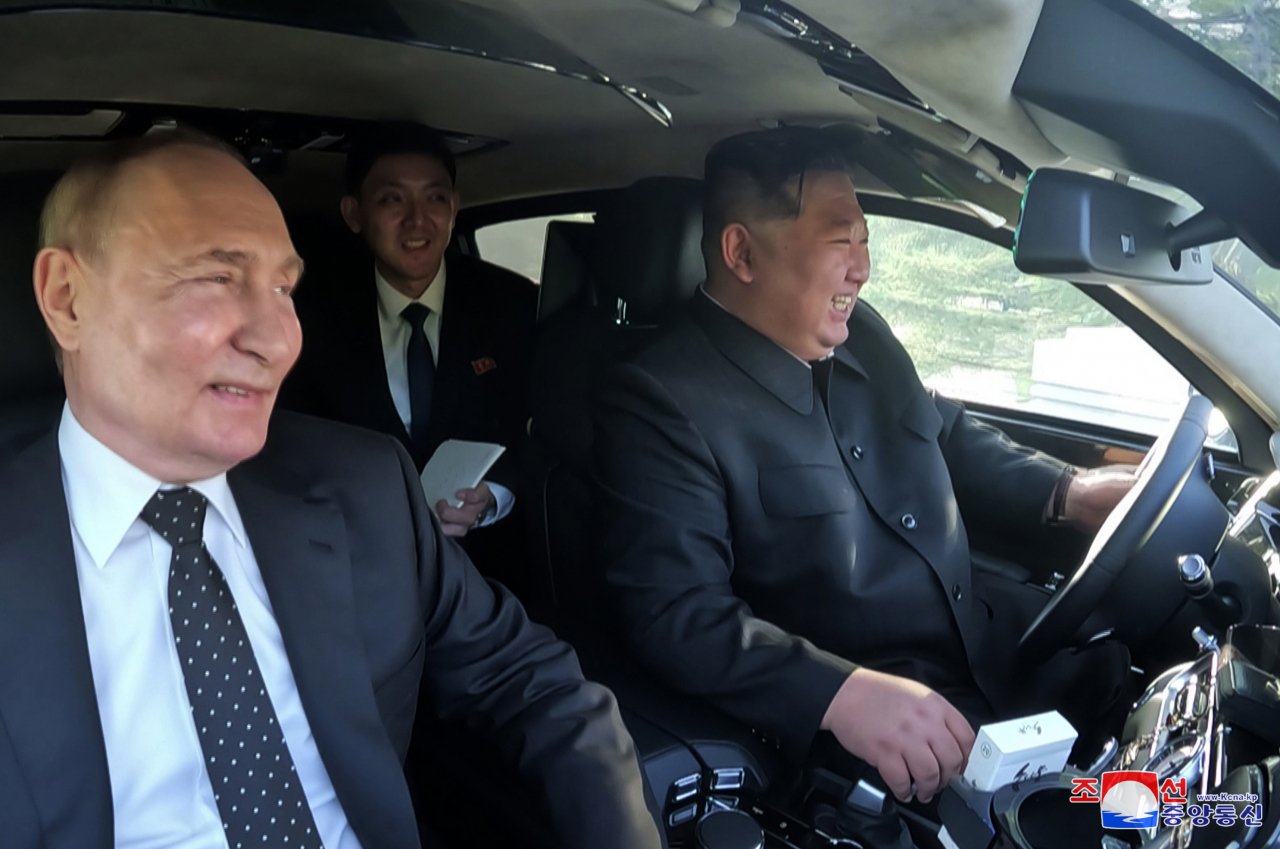
Russian President Vladimir Putin's signing of a defense treaty with North Korean leader Kim Jong-un has prompted South Korea to reconsider its policy on providing military aid to Ukraine. Despite maintaining a stance of offering only nonlethal aid to Ukraine over the past 2 1/2 years, South Korea is now contemplating a shift in its approach following Putin's commitment to support North Korea in the event of an invasion, as outlined in the new military pact signed during his visit to Pyongyang. This development has raised the possibility of Seoul expanding its support to Kyiv, although it faces challenges such as the need for domestic political consensus. The growing alliance between Putin and Kim, culminating in the recent treaty, has led the Yoon Suk Yeol administration to indicate a potential revision of its nonlethal aid policy for Ukraine. The ruling People Power Party has emphasized the necessity of providing lethal aid to Ukraine in response to the perceived threat posed by the collaboration between North Korea and Russia. However, South Korea's decision-making process is complicated by concerns about its relationship with Russia and the complex array of security interests it must consider before altering its policy on Ukraine aid. The bond between Putin and Kim, solidified by the defense treaty, has prompted South Korea to reassess its stance on providing military aid to Ukraine. The potential shift in policy is driven by concerns about the growing collaboration between North Korea and Russia, as well as the need to respond to the evolving geopolitical landscape. However, South Korea faces challenges in reaching a domestic consensus and must carefully consider the implications of altering its policy on Ukraine aid, particularly in the context of its broader security interests.
